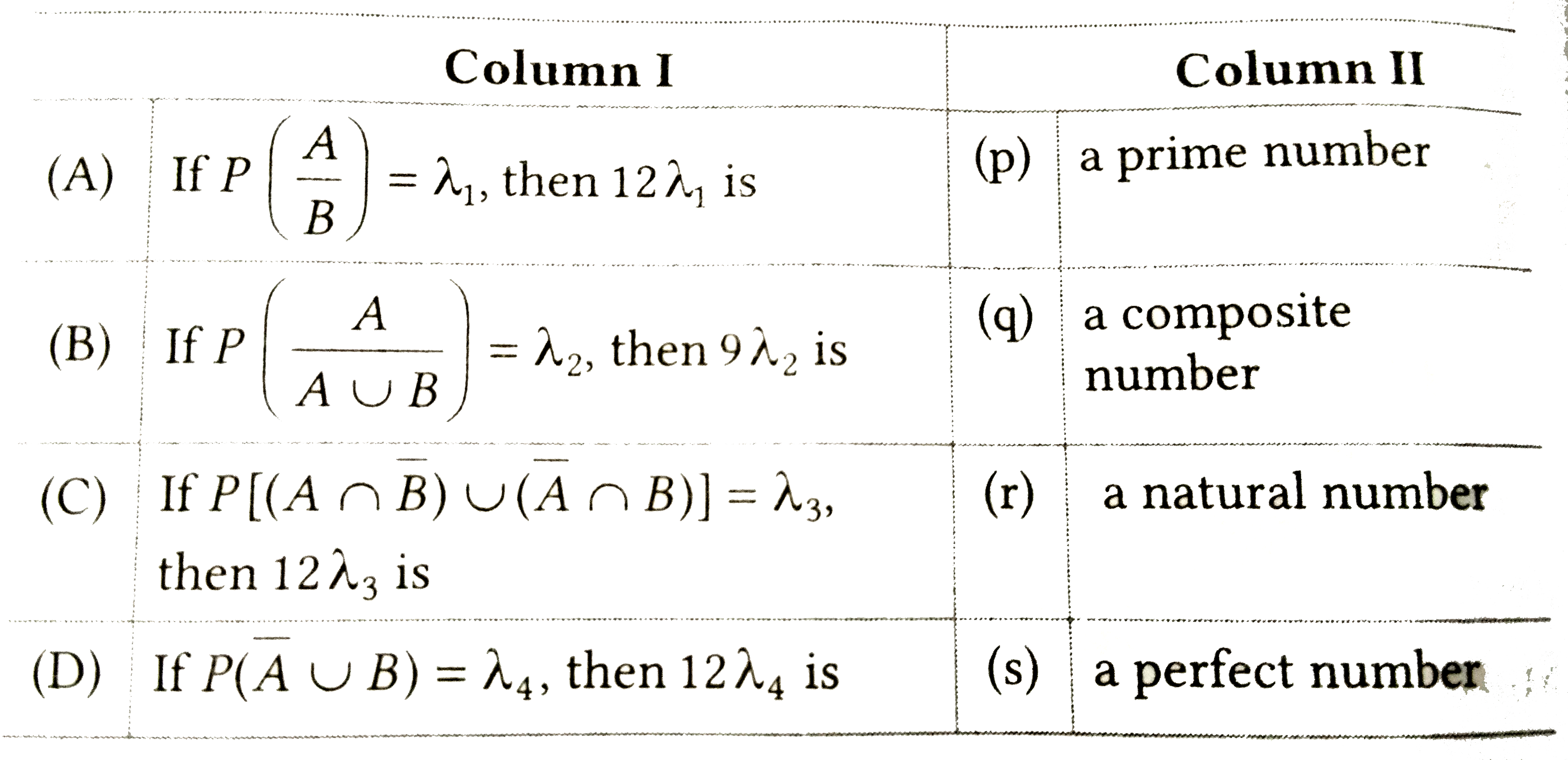Let A and B be two events, such that P(¯¯¯¯¯¯¯¯¯¯A∪B)=16,P(A∩B)=14andP(¯¯¯A)=14, where ¯¯¯A stands for complement of event A. Then events A and B are :
independent but not equally likely
independent and equally likely
mutually exclusive and independent
equally likely but not independent
The correct Answer is:A
Step by step video & image solution for Let A and B be two events, such that P(bar(A cup B))=(1)/(6), P(A cap B)=(1)/(4) and P(barA)=(1)/(4), where barA stands for complement of event A. Then events A and B are : by Maths experts to help you in doubts & scoring excellent marks in Class 12 exams.
Updated on:21/07/2023Topper's Solved these Questions
- PROBABILITYBook:ARIHANT MATHS ENGLISHChapter:PROBABILITYExercise:Exercise (Subjective Type Questions)
Explore 15 Videos
- PERMUTATIONS AND COMBINATIONS Book:ARIHANT MATHS ENGLISHChapter:PERMUTATIONS AND COMBINATIONS Exercise:Exercise (Questions Asked In Previous 13 Years Exam)
Explore 28 Videos
- PRODUCT OF VECTORSBook:ARIHANT MATHS ENGLISHChapter:PRODUCT OF VECTORSExercise:Exercise (Questions Asked In Previous 13 Years Exam)
Explore 51 Videos
Similar Questions
Let A and B be two events such that P¯¯¯¯¯¯¯¯¯¯¯¯¯(A∪B)=16,P(A∩B)=14andP¯¯¯A=14,where ¯¯¯A stands for complement of event A. then , events A and B are
View SolutionLet A and B be two events such that P¯¯¯¯¯¯¯¯¯¯¯¯¯(A∪B)=16,P(A∩B)=14andP¯¯¯A=14,where ¯¯¯A stands for complement of event A. then , events A and B are
View Solution
Knowledge Check
If A and B be two events such that P(A)=12P(B)=13andP(AB)=14 thenP(A∩B) equals
A112B34C14D316If A and B are two events such that P(A∪B)=34,P(A∩B)=14andP(¯¯¯A)=23 then P(¯¯¯A∩B) is equal to
A38B58C512D14
Let A and B be two events such that p(¯¯¯¯¯¯¯¯¯¯A∪B)=16,p(A∩B)=14 and p(¯¯¯A)=14 , where ¯¯¯A stands for the complement of the event A. Then the events A and B are (1) mutually exclusive and independent (2) equally likely but not independent (3) independent but not equally likely (4) independent and equally likely
View SolutionLet A and B be two events such that p(¯¯¯A∪B)=16,p(A∩B)=14 and p(¯¯¯A)=14 , where ¯¯¯A stands for the complement of the event A. Then the (1) mutually exclusive and independent (2) equally likely but not independent (3) independent but not equally likely (4) independent and equally likely
View SolutionIf A and B are two events such that P(A∪B)=56,P(A)=13andP(B)=34, then A and B are
View SolutionA and B are two events such that P(A∪B)=34,P(A)=13,P(¯¯¯A∩B)=
View SolutionIf A and B are two independent events, such that P(A)=13andP(B)=14.

View SolutionIf A and B are two given events, then P(A∩B) is
View Solution